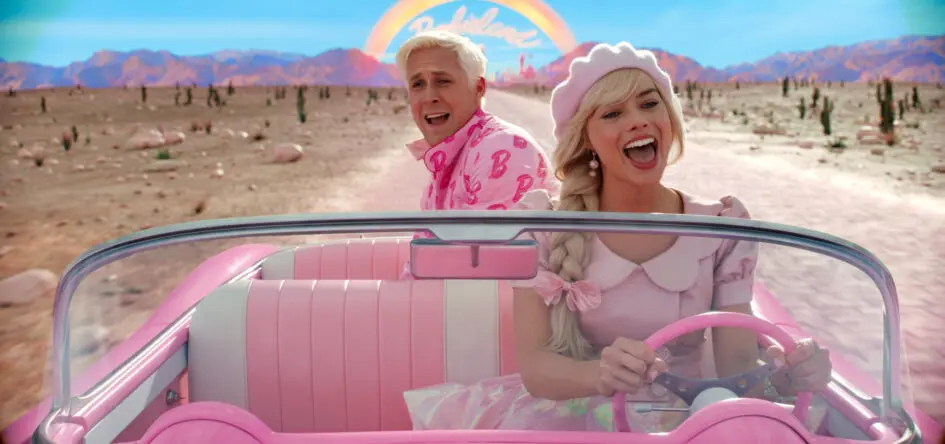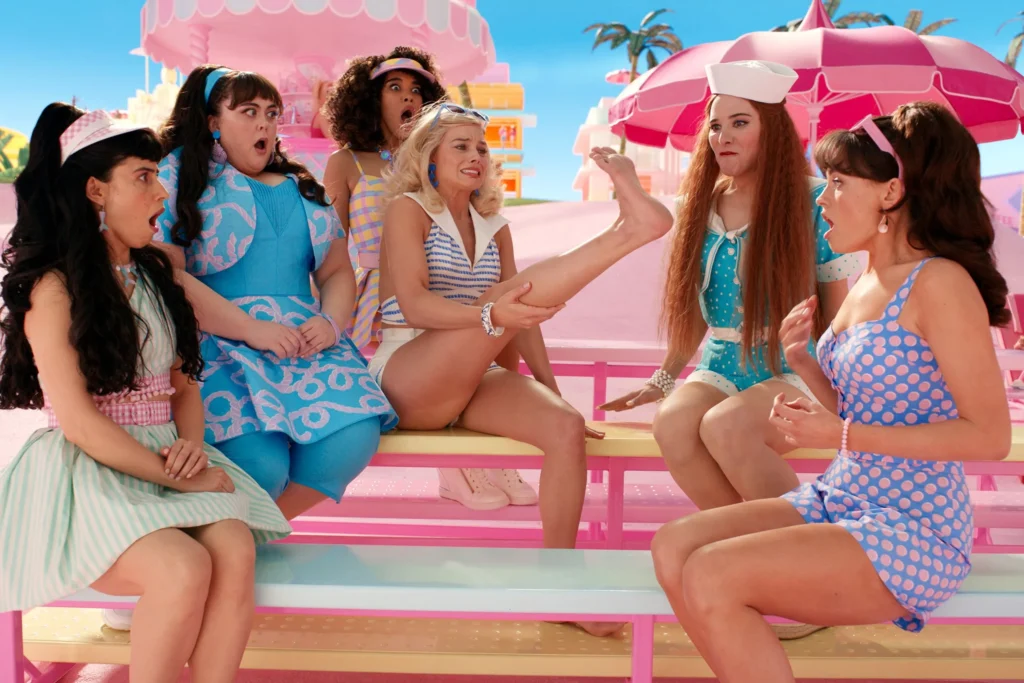Had you told me when I began writing movie reviews that I’d be crafting one for a Barbie film, I’d have dismissed the idea as ludicrous. If you then added that I’d be writing this review because the movie achieved one of the highest ratings ever, I might have considered checking if you accidentally left a mental health facility without your medications. Yet, here I am, in that very situation.
Strangely, after the events of 2020, it no longer surprises me (in fact… not much of anything shocks me anymore, after that insane year).
Initially, upon the release of its first trailer, I anticipated Barbie would either be a lighthearted and enjoyable film at best or, at worst, a movie laden with overt social commentary. The director, Greta Gerwig, is recognized for her willingness to address gender disparities, openly or subtly. In some of her previous film offerings, she delves into stories where men seem to ascend despite failures, while women face criticism for even the most trivial imperfections. While my hope was for an entertaining film, I feared it might inevitably transform into a production that lectures the audience, admonishing them for seeking enjoyment in the satirical world it aimed to portray.
Surprisingly, Barbie manages to include both and neither of those anticipated tropes.
The movie strikes a delightful balance, delivering an enjoyable, good-natured experience filled with laughter and clever, tongue-in-cheek moments. It embraces its essence as a film about dolls, unapologetically reveling in the inherent goofiness of the concept. Without attempting to feign otherwise, Barbie astutely acknowledges that these dolls are products of a company led by men, representing an unrealistic standard imposed by these individuals. While shedding light on the dolls’ potential contribution to unrealistic expectations, the film cleverly underscores the idea that this emotional impact is somewhat self-inflicted.
Impressively, it seeks to transform criticism into empowerment, successfully achieving this ambitious goal.
Barbie unfolds in the fantastical realm of Barbieland, where the various versions of Barbie assume professional roles, leaving the Kens to bask in leisure. Stereotypical Barbie (Margot Robbie), and Beach Ken (Ryan Gosling) navigate their lives in a quasi-relationship within this fictitious land. However, Barbie undergoes a crisis of mortality one evening, thrusting her into “real-world” predicaments like cellulite and bad breath. Frantically seeking guidance, she turns to Weird Barbie (Kate McKinnon) who advises her to locate the child playing with her in reality and offer assistance.
Consequently, Barbie, accompanied by a stowaway Ken, embarks on a journey into the real world. Roles become reversed. Sacred ideologies are shattered. And their lives will never be the same again.
Margot Robbie delivers an outstanding performance as the central character, fully embodying the titular role with her trademark commitment to her craft. Renowned for investing herself deeply in her characters, Robbie brings to life a plastic doll with a remarkable blend of child-like innocence and a focused purpose. In this film, Barbie emerges as a complex character, a challenge that Robbie navigates with keen talent. The ensemble cast, featuring Kate McKinnon, Michael Cera, Will Ferrell, America Ferrera and Ryan Gosling, complements Robbie’s performance, infusing even more vitality into the Barbieland world. Collectively, their contributions elevate the film into an award-worthy piece of cinema.
While Barbie has its merits, it’s not without its drawbacks. Despite its just over 90-minute runtime, the film, at times, feels prolonged and drawn out. The abundance of fluff, including excessive dance numbers, seemingly pointless musical scenes and jokes that linger too long, contributes to this sense of lengthiness. It almost appears as though the writers crafted a compelling story but realized, during production, that they only had about 60 minutes of substantial content. To compensate and pad the runtime, filler moments were incorporated.
This also could be attributed to the oversight of Mattel, the company holding the Barbie doll license.
It raises the possibility that certain scenes or dialogues were considered “not in the Barbie spirit” or potentially too critical of the corporation and, as a result, found their way onto the cutting room floor. The true reasons may never be known. But while these scenes do feel lengthy, they do reach a conclusion that fit into the story, and thus have purpose.
I give Barbie four out of five stars. Director Gerwig has pleasantly surprised me with this delightful film. Barbie is a lively, spirited creation with a wholesome and empowering message that avoids coming across as preachy. Margot Robbie steals the show, skillfully breathing life into the beloved doll of generations past, transforming her into a character truly deserving of the iconic name. The question of future Barbie films seems inevitable, and with Greta Gerwig at the helm, capable of working her magic, this movie holds the potential to evolve into a franchise that even my daughter will adore (if I can ever manage to pry her away from Minecraft).

